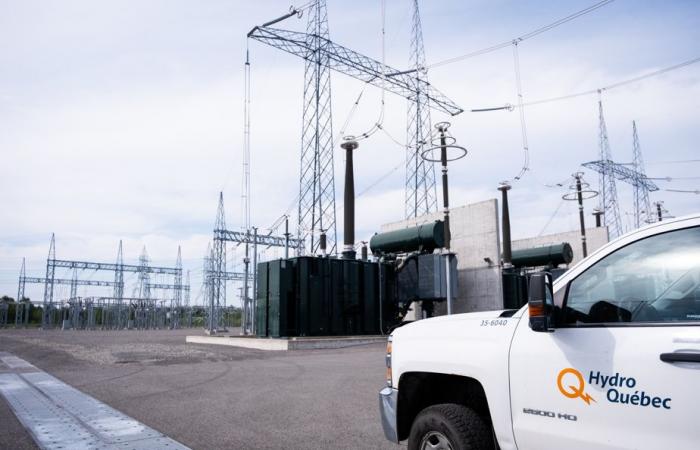Hydro-Québec is refusing to include in its request for a 2025 rate increase the sums it pays to Énergir to compensate for the gas distributor’s losses for gas consumers who convert their heating from gas to dual energy.
Published at 1:50 a.m.
Updated at 8:00 a.m.
“In order to avoid a debate and delays related to this subject, the Distributor has decided to withdraw from its request the inclusion of the GHG Contribution to be paid to Énergir for the purposes of this file,” says the letter sent to the Régie energy by Hydro-Québec on October 30.
The day before, The Press had noted the fact that even if the agreement with Énergir is still contested in court, Hydro-Québec has already started paying money to the gas distributor and that it has included these payments in the costs which serve to justify its increase in electricity rates from 1is avril 20251.
For 2025, Hydro-Québec wanted to recover 3 million from the electricity rates of all of its customers. “As was announced from the start, we included the GHG contribution in the 2025 tariff request submitted last August,” a spokesperson for the state-owned company said on Monday.
“By complying with the rules of the agreement, Hydro-Québec is not contravening any judicial decision,” he added.
“We are satisfied”
Hydro-Québec’s about-face is welcomed by those who have been opposed from the start to electricity consumers paying to reduce the carbon footprint of Énergir and its customers.
“We are satisfied to see that Hydro-Québec customers will have that much less to pay in 2025,” reacted Jocelyn Allard, spokesperson for Hydro-Québec’s largest customers, the Quebec Association of Industrial Consumers. electricity (AQCIE).
The AQCIE and the Quebec Forest Industry Council have opposed the agreement concluded between Hydro-Québec and Énergir since it was announced in 2021. The Régie de l’énergie ruled in favor of the opponents and its decision was contested in Superior Court by Hydro-Québec. The case is now awaiting a hearing before the Court of Appeal.
Hydro-Québec’s decision to include the cost of its agreement with Énergir in its rate application filed last August was a surprise, according to the AQCIE spokesperson.
How could Hydro include something it has no right to do?
Jocelyn Allard, spokesperson for the Quebec Association of Industrial Electricity Consumers
While awaiting the decision of the Court of Appeal, it is the decision of the Régie de l’énergie (which said no to Hydro-Québec) which applies, he specifies.
The agreement concluded with Énergir to promote the conversion of natural gas heating systems to a dual-energy electricity-natural gas system plans to reserve gas consumption for episodes of extreme cold only, when the electricity network struggles to meet demand.
The agreement meets the gas distributor’s objectives to reduce its greenhouse gas emissions, but it also means a significant loss of revenue, which would be compensated by Hydro-Québec and an increase in the electricity bill.
The amounts involved are still modest, but they are expected to increase with the conversion of existing gas heating systems and with the installation of new dual-energy systems in new construction, which could continue indefinitely.
In 2030, the agreement with Énergir could add 1.4% to Hydro-Québec’s annual rate increase, according to estimates from the state-owned company.
1. Read the article “Énergir has already received more than 1 million from Hydro-Québec”






